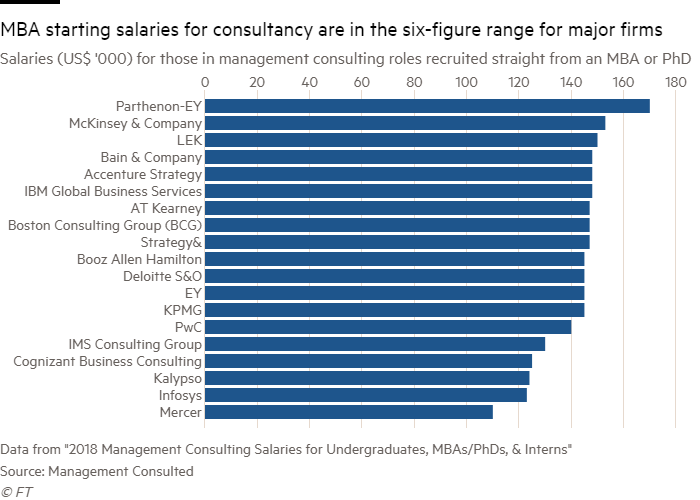
When a company hires a consultant to work for them on a project, it's usually a good idea for both parties to sign an agreement that defines the terms and conditions of the relationship. This agreement can protect both parties and ensure that the project runs smoothly.
What is a Consulting Services Contract (or a Contract for Consulting Services)?
A consulting services agreement is a legal document defining the scope of the services to provided and how they will be paid. It's an essential document that both parties should review before signing any agreement. By reviewing it, they can ensure they understand each other's expectations and don’t get surprised by any future surprises.
1. Scope and Compensation
Both parties should clearly define the scope and price of the consulting services. This ensures that they know exactly what is being provided and can honour their obligations. This helps to ensure that the services aren't overpriced and that they are delivered on time.

2. Compensation
It is often a good idea for consultants to have a fixed term. This will indicate how much the consultant will be paid at the conclusion of their contract. This will help the client know what they can expect to be paid and how to resolve any disputes.
3. Non-Disclosure, Non-Compete
The consulting agreement should have a prohibition on the consultant competing for the company's business during the contract period or for a specific time after it ends. This will help ensure that the consultant is not jeopardizing the company's assets or reputation without recourse.
4. Agency Intellectual Property and Data & Background Information
A contract should be signed by the parties. It should state who owns any Agency intellectual property, data or background information. It should also mention that they are forbidden from using any of the Agency's intellectual property or data without authorization from the agency.
5. Agency Representations and Warranties
In an agreement, the parties should state the warranties and representations made by the consultants. These should include details about the project's scope, its completion, and the goals and objectives.

6. Miscellaneous Provisions
The agreement should also include miscellaneous provisions that will govern the contract and resolve any disputes that might arise during or after the project. These may include matters such as the governing law and how disputes are settled and the assignability rights and obligations under contract.
7. Injunctive Relief
The parties agree that if either party is in breach of its covenants or terms and conditions in the agreement, they will seek injunctive relief to resolve this situation. This will protect the parties from additional risks and allow them to quickly and efficiently resolve any problems.
FAQ
What degree do I need to become a consultant?
It is best to study a subject well and then practice what you have learned.
Start studying today if you want the skills to be a great manager!
It may be difficult to get hired if your degree is not accompanied by relevant work experience. However, if you can demonstrate that you've studied the same subjects as those who got the jobs, you could still apply.
Employers are always looking for people with real-world knowledge.
What should I expect from my consultant
When you choose your consultant, they should respond within a few working days. They will ask you for information about your business, including the mission, goals, products, and budget. Then, they'll send over a proposal outlining the scope of work, estimated time frame, fees, deliverables, milestones, etc.
If all goes according to plan, the two sides will sign a written deal. The terms of the contract will depend on the type of relationship between the two parties (e.g., employer-employee, employer-independent contractor).
If everything goes as planned, the consultant may begin to work immediately. The consultant will have access your internal documents and resources. Additionally, you'll have access their skills and knowledge.
Don't think that consultants are experts. It takes practice, effort and practice in order to be an expert in any area you consult. Your consultant should not assume that they know everything about you business.
How much do consultants earn?
While some consultants make $100k+ per year, most consultants only earn between $25-$50k. The average consultant salary ranges from $39,000 to $39,000. This includes hourly as well as salaried consultants.
Salary depends upon experience, location, industry and type of contract (contractor/employee). It can also depend on whether the consultant has their own office or works remotely.
How can I find clients for my consulting business?
First, find a subject you're passionate about. It could be anything from social media to public relations, but there must be something you feel strongly about. You may need to start small and find a niche market like web design. Once you've found this niche, make sure you understand what makes it tick. What problems does it solve Why should people use them? How can you help them?
You can also contact businesses directly.
If all else fails you can offer your services at free events such as conferences or networking nights. You'll meet many potential customers without spending money on advertising, and you'll be able to show off your skills.
What is the difference?
A consultant provides advice on a topic. A consultant provides solutions to problems.
Consultants work directly with clients to help them reach their goals. Clients are referred to advisors through books, magazines and lectures.
Statistics
- "From there, I told them my rates were going up 25%, this is the new hourly rate, and every single one of them said 'done, fine.' (nerdwallet.com)
- On average, your program increases the sales team's performance by 33%. (consultingsuccess.com)
- WHY choose me: Why your ideal client should choose you (ex: 10 years of experience and 6-week program has helped over 20 clients boost their sales by an average of 33% in 6 months). (consultingsuccess.com)
- According to IBISWorld, revenues in the consulting industry will exceed $261 billion in 2020. (nerdwallet.com)
- Over 62% of consultants were dissatisfied with their former jobs before starting their consulting business. (consultingsuccess.com)
External Links
How To
How do I find a good consultant?
Understanding your needs is the first step to finding the right consultant. Do you want them helping you improve your website's performance or not? You want them to optimize the site for search engines to make it rank higher. You might also want someone to help you determine if your hosting provider is in trouble. When you are clear about the services you require, you can start to look at other companies. Many consultants claim to be able to provide these services. However, only a handful of them actually deliver on their promises. So how do you go about choosing one? Here are some considerations when choosing a consultant.
-
Ask for referrals. This is the best way to select a consultant. You don't want to hire someone you've never heard of before because you'll likely pay too much. But you also don't want to work with someone whose reputation isn't solid. It's great if you get recommendations from people you trust. However, even if this is not possible, you might still be able check reviews online. Find testimonials and case study examples from customers who have used your product.
-
Ask around. Many people don't realize that consulting could be beneficial for them. People believe they don't have to make any changes because they are currently doing well. This is often incorrect. Even if you're getting great results right now, chances are that you haven't been keeping up with new trends or technologies. Your business could be missing out if it relies on outdated methods. It's always worth asking for referrals to find good consultants.
-
You should verify their qualifications. No matter how small your project is, it's important to ensure that the consultant you choose has the necessary skills. It doesn't matter if they are qualified for the task or not; make sure they are knowledgeable in the field.
-
Find out what kind of projects they specialize in. You might think that everyone can handle all projects, but this is false. Certain areas may require special training or education. For example, if you need someone to build a WordPress theme, you won't want to hire a developer who specializes in Drupal. This is true for programming languages and graphic design. Ask the designer what kind of projects they have worked on in the past.
-
Be aware of their fees. As we mentioned, it is important to know what they charge. You also don’t want to spend too little. Consultants come from all walks of life. Some consultants bill by the hour, while others charge per project. Knowing exactly what you're paying upfront will save you money down the road.
-
Find out what they offer. Are they willing to provide free consultations? Do they offer advice on setting up your system? Are they able to guarantee that your site will rank better after working with you? You can cancel your consultation at any time without penalty if you are not satisfied with what you heard.
-
Find out if the company offers discounts for several months or years. Many consultants offer discounts for longer periods. It is not necessary to commit to an entire year. However, you could still benefit from any deals offered by the consultants.